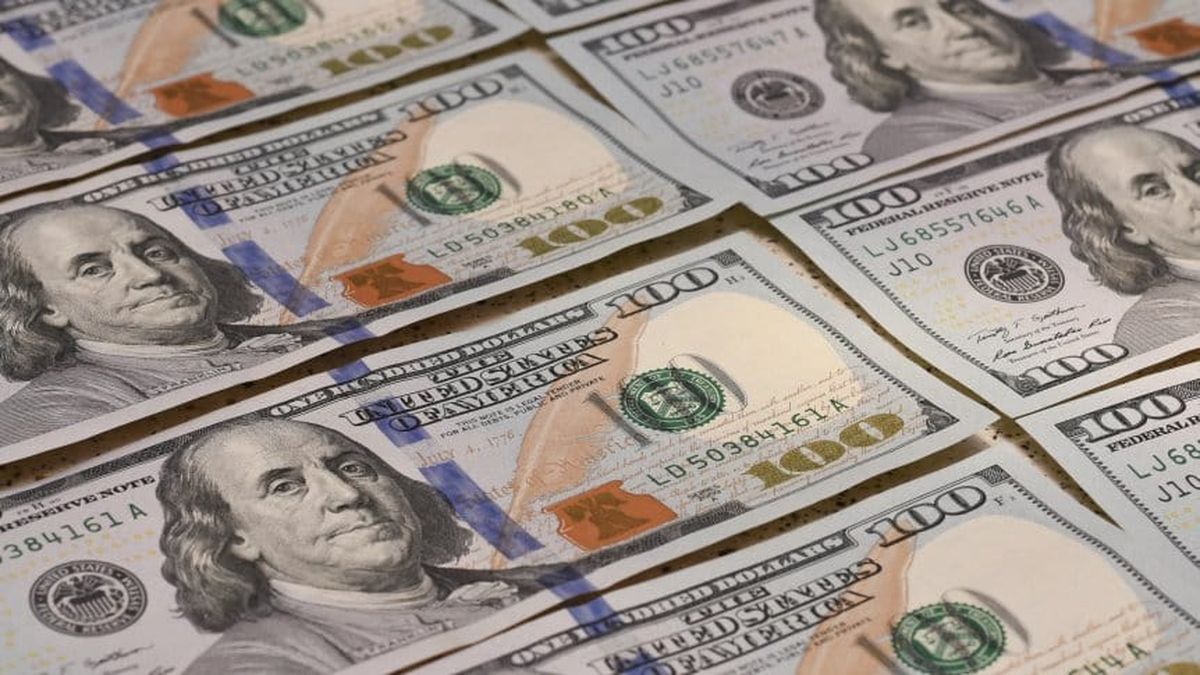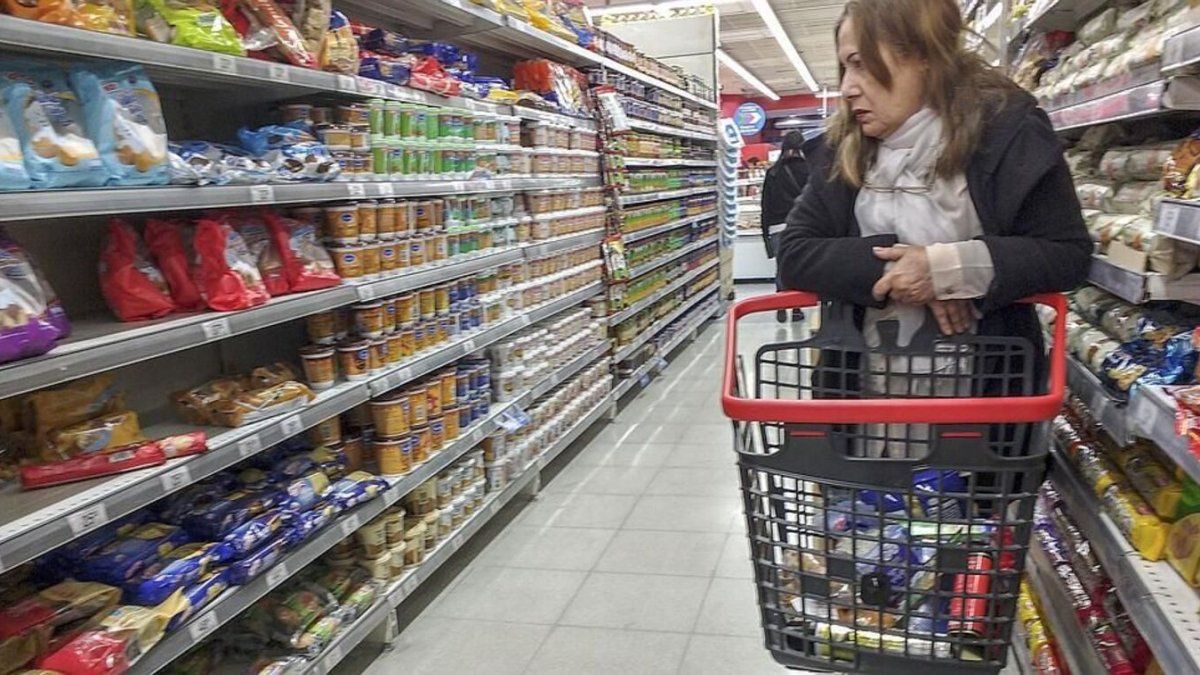The dollar according to Aldo Abram
The economist Aldo Abram, director of the Fundación Libertad y Progreso, said that, as was expected to happen after the legislative elections, the monetary authority began to accelerate the rate of rise of the wholesale dollar“.
He added: “This is logical because the exchange delay that the government opted for prior to the elections discourages exports and, at the same time, producers suffer an increase in costs due to inflation.” At the same time, the demand for dollars by importers grows.
To Abram, “there will be a devaluation, which will not be overnight, but within a period of 6 months, a period in which the official dollar may increase up to 30%“.
Regarding the parallel financial dollars, Counted with Liquidation and MEP, the economist stated that “they will continue to rise because the expectation is that the Government will continue to issue and the fall in demand for pesos will continue, which is It is possible that towards the end of December some tranquility will be noticed in this segment due to the seasonal increase in the need for pesos by companies and families for vacation expenses, among others “.
In this context, the analyst stated that the stock market dollar could be around $ 210 by the end of the year.
The dollar according to Sergio Chouza
Economist Sergio Chouza said that “two factors help anchor the highs that were reached prior to the legislative elections: the short-term electoral noise has finally been turned off, although there is still a bit of uncertainty about the IMF issue but the outlook is that a favorable result will be reached before February; and on the other hand, some actors (politicians and economists) even from the opposition stated that the value of the dollar is high, that also allows to bring tranquility also to sectors that are reactive to the government “.
Chouza added another additional factor: “the latest restrictions on the exchange market allow the Central Bank to have a more effective intervention to reduce pressures on financial channels; the threat in relation to the firepower of the Central has more weight than the specific participation of the Central Bank. monetary authority in the market “.
“The closing of the gap between free and ‘ex – regulated’ dollars after elections is genuine without intervention and that also eases arbitrage pressures on the financial system,” Chouza said.
In this scenario, the economist indicated that “there are no pressure factors in the short term and a high dollar is structurally observed in all segments. However, it is necessary to advance in a program within the framework of the Multi-year Plan for Sustainable Development that allows another operation of the market with less segmentation and less dollar prices “.
The dollar according to Gustavo Quintana
Analyst Gustavo Quintana, from PR Corredores de Cambio, indicated that “in the official market I do not believe that there will be a substantial modification of the current policy. A slight increase in the devaluation rate could only be verified, if they persist with the criteria seen in November“.
While, regarding the rest of the markets, Quintana said that “seasonally the first fortnight of the month is demanding of pesos, for which I would not be surprised by a drop in the price of alternative dollars. The second fortnight may show a recovery in demand, but if international tourism declines, we will see if there is any reaction in prices. “
The dollar according to Federico Glustein
Federico Glustein, economist and professor at the University of Buenos Aires (UBA) highlighted that in the official segment “there is an increase greater than before the elections and it seems that the ‘crawling peg’ will go from 1% to 1.5% monthly to a figure closer to 2%, given that the delay compared to inflation is notorious, which rose at least 20 percentage points more than the price of green “.
He stated that “this exchange rate appreciation together with an increase in the (monetary) issue is transferred to a greater demand for dollars and to restrictions such as those seen in recent days for trips abroad in installments.”
Glustein also added that, amid the depreciation of emerging currencies such as the Turkish lira and the Brazilian real, “the Argentine peso cannot be left behind for long, especially if interest rates do not rise. Therefore, the crawling peg is likely to accelerate closer to inflationary levels to avoid losing competitiveness but without a large devaluation jump, thus avoiding a strong transfer to prices“.
The dollar according to Marcos Buscaglia
Marcos Buscaglia, head of Alberdi Partners, highlighted that “in any scenario there will be an increase in the exchange rate“And argued that the Central Bank’s reserves” fall almost every day, except when the BCRA introduces Kafkaesque measures. ” He anticipated that after the year-end payments, net reserves will be only 4 billion dollars and “when there are no reserves and there are payments, there is no other than to devalue”.
In this sense, he presented the “complicated” table of maturities of the country in foreign currency that totals 8,776 million dollars between next December and April.
One of the consequences of the devaluation is that inflation is going to accelerate, said the economist. In addition, the price thaw will drive the cost of living index rise. He recalled that “with everything tied down, core inflation advances to 57% per year” and specified that gasoline should rise 25% to be in line with the international price.
The unfreezing of public rates will also play a role, since according to Buscaglia, “energy subsidies in more than 3% of GDP are unsustainable in 2022”.
The dollar according to Víctor Beker
The director of the Center for Studies for the New Economy (CENE), Víctor Beker, stated that “Argentina needs to reach an agreement with the Fund before March to be able to negotiate with the Paris Club and not default to this credit body” .
Asked about the impact that an eventual agreement will have on the price of the dollar, the economist indicated that “probably in the short term there will be a relaxation because surely the agreement with the Fund will give some guidelines about the government’s economic plan. This will surely help narrow the gap between the blue and the official dollar.“.
Source From: Ambito
David William is a talented author who has made a name for himself in the world of writing. He is a professional author who writes on a wide range of topics, from general interest to opinion news. David is currently working as a writer at 24 hours worlds where he brings his unique perspective and in-depth research to his articles, making them both informative and engaging.




